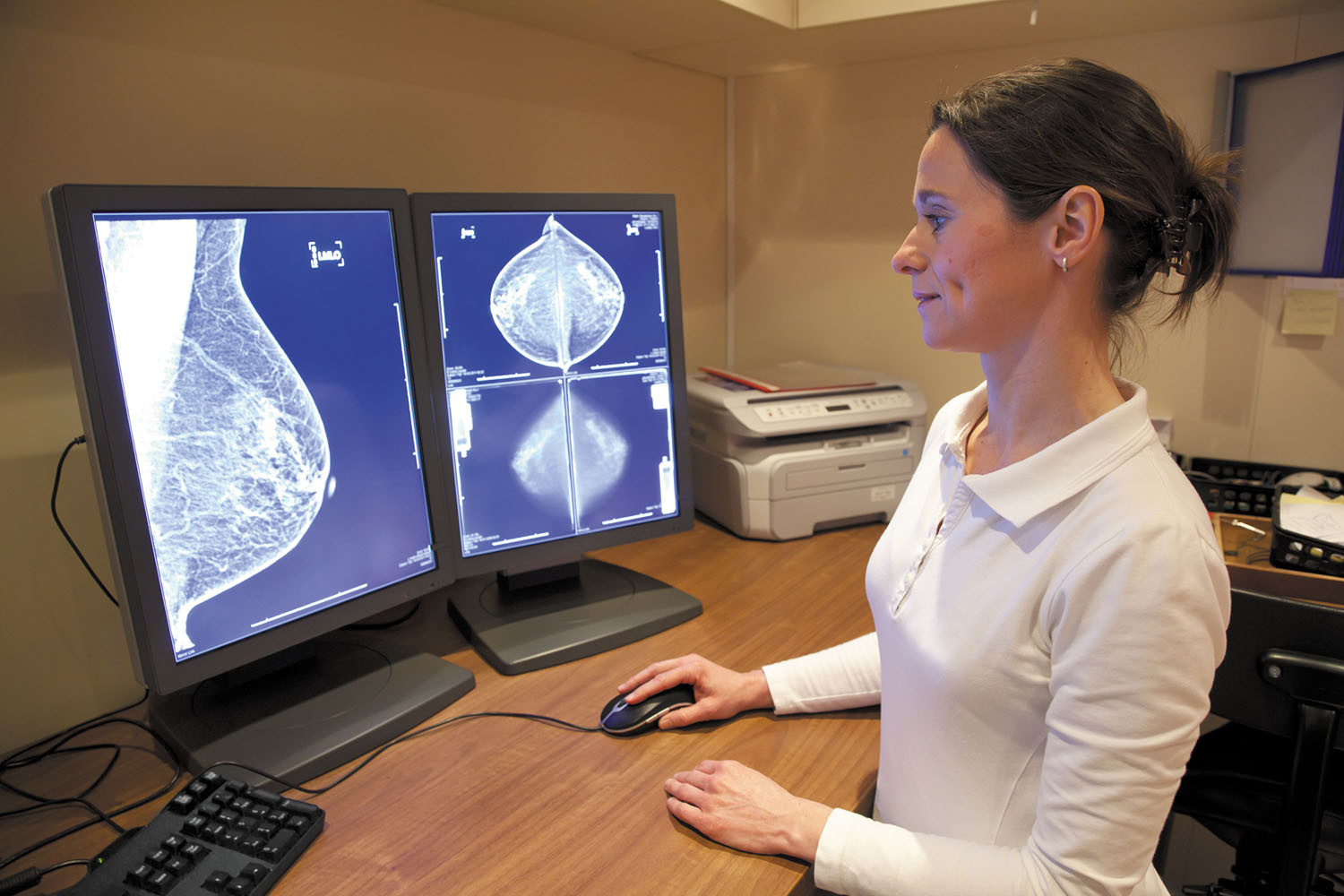
5 timeless habits for better health

What are the symptoms of prostate cancer?

Is your breakfast cereal healthy?

When pain signals an emergency: Symptoms you should never ignore

Does exercise give you energy?

Acupuncture for pain relief: How it works and what to expect

How to avoid jet lag: Tips for staying alert when you travel

Biofeedback therapy: How it works and how it can help relieve pain

Best vitamins and minerals for energy

Should you take probiotics with antibiotics?
Healthcare Archive
Articles
The doctor will see you now, in your home
The old-fashioned house call is back in a big way. Here's how it works.
It's hard to get to the doctor when you don't drive anymore or you're struggling with several chronic medical conditions. The result may be missed appointments and a lack of needed care.
But a growing trend makes it far easier for older adults to get medical attention, bringing routine exams and diagnostic tests to the patient's doorstep. It's called home-based medical care — when doctors, nurse practitioners, physician assistants, or other providers visit and treat older adults right in their homes.
Medically tailored meal programs linked to fewer hospital stays, lower costs
News briefs
As we've reported before, free medically tailored meals are making a big difference for older adults who have chronic illness or are recovering from a hospital stay. The meals are provided by nonprofit agencies and are customized to your dietary needs — like a potassium-controlled diet if you have kidney disease, or a diet low in vitamin K if you're taking a blood thinner. Now an observational study published online April 22, 2019, by JAMA Network Open suggests that taking part in a free medically tailored meal program is linked to fewer admissions to hospitals and nursing homes, as well as lower medical costs. Researchers looked at about 1,000 adults with health problems such as cancer or diabetes. Half took part in a free medically tailored meal program for about a year; the other half did not. During a two-year follow-up, people who received medically tailored meals had 49% fewer hospital admissions and 72% fewer nursing home admissions than those who did not receive meals. Getting the meals was also tied to a 16% reduction in medical costs each month. To find a program near you, check out the partner section of the Food Is Medicine Coalition (www.fimcoalition.org/partners).
Image: © FredFroese/Getty Images
Dealing with high-density breasts
The FDA may require mammography facilities to notify patients about this breast cancer risk factor, but women don't know what to do with this information.
Do you know how dense your breasts are? If you don't, a new proposal by the FDA may mean you will soon find out.
The agency proposed a change that, if approved, will require mammography facilities to send letters informing women about their breast density — a measure of the proportion of active tissue versus fat in their breasts (see "The FDA proposal").
What to do if your medication is recalled
Drug recalls don't necessarily affect every batch of a pill or potion. You'll need to do a little homework before you stop taking your medication.
We take prescription and over-the-counter medications to get better or avoid getting sick. We know drug side effects can make us feel ill. But we don't imagine that medications can contain toxic impurities. Yet, it happens. Recently, for example, dozens of prescription blood pressure pills (angiotensin-receptor blockers, or ARBs) containing trace amounts of potentially cancer-causing compounds were recalled.
Recalls happen frequently. Sometimes, the FDA finds the manufacturing process to be defective. Other times, a dangerous side effect that was initially not apparent becomes clear later. "Some medication recalls are for problems that are not very serious, but the products have to be recalled nonetheless," says Joanne Doyle Petrongolo, a pharmacist with Harvard-affiliated Massachusetts General Hospital.
Keep your advance directive safe but accessible
Many people understandably want to keep their living will and health care power of attorney forms in a secure place. But if these documents are locked away in a safe deposit box, they won't be much help if you're unexpectedly hospitalized. Here are some people who should have copies of your advance directives and some other places where they should be filed.
Your health care agent and any alternative agents. All should have a copy of your health care power of attorney (and your living will, if you have one). In an emergency, your agent may need to fax the documents to doctors or a hospital.
Your doctor. A copy of your advance directives should be in your file and medical record.
Your hospital chart. If you are in the hospital, ask to have a copy of your advance directives put in your chart. (Your health care agent or a family member should do so if you are unable to do it.)
A safe spot in your home. File the original documents in a secure place in your home — and tell your agent, family, and friends where you put them. Hospitals may request an original, so it's important that someone can find the documents when necessary. The National Hospice and Palliative Care Organization suggests noting on all copies of the documents where the originals are stored.
Carry it with you. Put a card with your health care agent's name and contact information in your wallet or purse. Also note on the card where you keep the original and additional copies of your directives.
If you have a do not resuscitate order (DNR), remember that you or your health care agent may be required to produce a signed form, or you may have to wear a special bracelet identifying that decision. If a lawyer drew up your advance directives, ask whether he or she will keep a copy, and for how long.
Tips for success when your kids are on your health care team
Be upfront about your needs, and set your own ground rules.
Image: © SelectStock/Getty Images
Allowing your kids to be involved in your health care can have many benefits. The arrangement provides advocates who can help you follow your treatment plan, talk to your doctors, and maybe even make appointments and take you to them. As an added bonus, you get to spend more time with your adult children.
But the arrangement isn't always easy. "There's a tendency for roles to reverse. The child becomes the parent. The parent may not be comfortable with that. Or the parent doesn't want to burden the child, and lets health issues go until they're too far gone," says Dr. Suzanne Salamon, associate chief of gerontology at Harvard-affiliated Beth Israel Deaconess Medical Center. Consider the following tips to navigate the relationship.
Do urgent care clinics overprescribe antibiotics?
News briefs
Image: © AlexRaths/Getty Images
Urgent care clinics are convenient when you don't feel well and can't see your doctor right away. But a study published online July 16, 2018, by JAMA Internal Medicine found that people who go to such clinics may be more likely to be given prescriptions for unnecessary antibiotics. Researchers analyzed 156 million insurance claims from 2014 and found that 46% of people treated at urgent care centers for viral conditions — like a bad cold, the flu, or viral bronchitis — were prescribed antibiotics. The problem: antibiotics kill only bacteria, not viruses. The study underscores the need to ask health care workers if you have a viral or a bacterial condition before you take antibiotics.
Pay less for heart drugs without using insurance?
Research we're watching
Image: © Gligatron/Getty Images
Do you take generic drugs to lower your blood pressure or cholesterol? You may save money by paying out of pocket at Walmart instead of a paying a Medicare prescription copay, according to an analysis in the July 24 Annals of Internal Medicine.
Walmart (and a number of other large chain stores) offer generic drug discount plans; they sell 30-day supplies of popular generic drugs for $4.

5 timeless habits for better health

What are the symptoms of prostate cancer?

Is your breakfast cereal healthy?

When pain signals an emergency: Symptoms you should never ignore

Does exercise give you energy?

Acupuncture for pain relief: How it works and what to expect

How to avoid jet lag: Tips for staying alert when you travel

Biofeedback therapy: How it works and how it can help relieve pain

Best vitamins and minerals for energy

Should you take probiotics with antibiotics?
Free Healthbeat Signup
Get the latest in health news delivered to your inbox!
Sign Up











